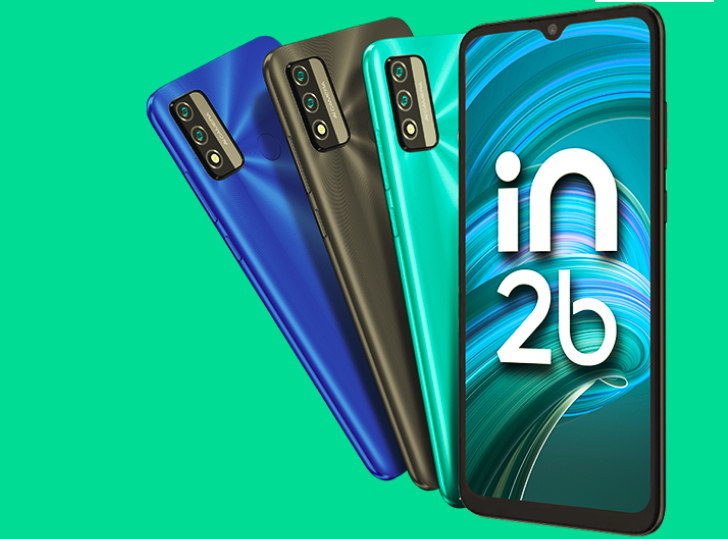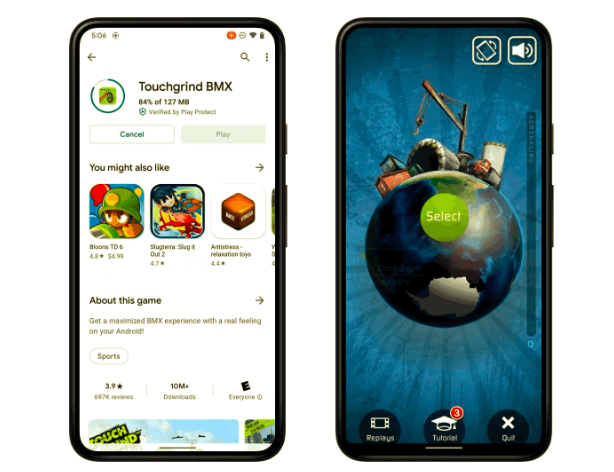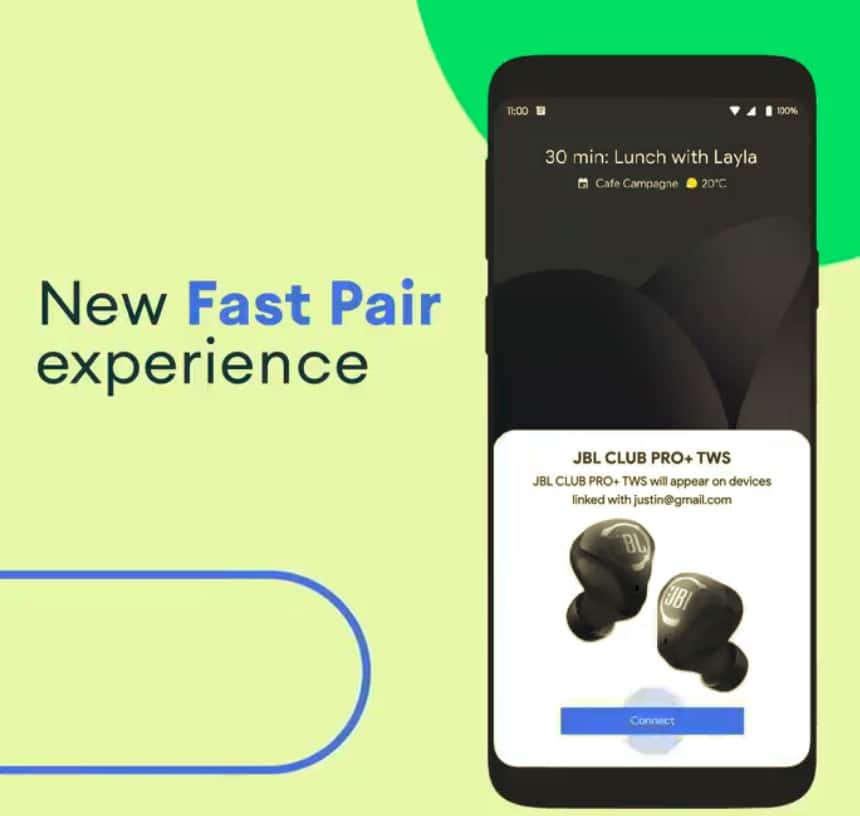Most of the Android flagships for 2017 have now been announced and (in most cases) reviewed. It’s true that there’s going to be a new Galaxy Note in a couple of months and some new Pixels, but a lot of what we’re expecting is now here. Begging the question of which is the best phone. But don’t worry if you can’t afford a flagship, for I’m going to pick the best in the mid-range and at the budget end of the spectrum too. Something for everyone!
‘Best’ is subjective, of course, plus you should also filter everything I pick below with my location in mind – I can only really judge based on handsets available in the UK and I’m using UK prices as my guide in terms of category (though US dollar equivalents are shown in most cases).
Top ‘budget Android’ (under £200/$250)
The budget Android handset segment is the fastest growing one in the smartphone market. OEMs are innovating more with their budget devices than with their flagship devices in recent times. Features that were once reserved for flagship smartphones have now become a commonplace even in budget Android handsets. Plus, the powerful budget chipsets now ensures that even budget Android handsets are able to deliver a smooth and lag free Android experience. So, until and unless you want a smartphone with the ‘best’ screen or camera, a budget Android handset is going to more than fulfil all your needs. And as a bonus, these budget Android handsets are an absolute champ in the battery life department.
Winner: Xiaomi Redmi Note 4 Global Edition ($180)
Imagine, if you will, a modern, fast, metal-clad Android smartphone with fingerprint sensor. Put in a new Snapdragon 625 chipset and 3GB of RAM, 32GB internal storage (plus card), a large 5.5″ 1080p screen and a decent 13MP f/2.0 dual LED flash main camera. Then throw in a massive 4000mAh battery to give it a genuine two-day life, with up to the minute USB Type C charging. Now think of a price. Then halve it. And – probably – halve it again.

The Redmi Note 4 Global Edition comes in at around £120, which is stunning value. There are a couple of catches, of course. The lesser is that there’s no NFC, so no Android Pay support, the greater is that you have to buy from one of Xiaomi’s resellers in China, so we’re not talking next-day delivery. But if you can wait a week or so and make sure you order this Global Edition with support for all LTE bands, many world languages, and the Google Play Store up front and centre, then you can’t really go wrong with this phone. A worthy budget winner.
Bonus link: Review
Runner-up #1: Moto G5 Plus ($230)

The Redmi Note 4 is a great phone by all means, but its camera performance is nothing to write home about. Then, there’s the lack of NFC, Xiaomi’s heavy MIUI 8 which might not suit everyone’s taste and the handset’s limited availability — which are a deal-breaker for many. So, if not the Redmi Note 4, your next best option is Moto’s G5 Plus.
Featuring a 5.2-inch Full HD display with a metal unibody construction, the G5 Plus impresses with its 12MP f/1.7 shooter at its rear. Barring OIS, the camera setup is similar to that of the Galaxy S7/S8 which means you get reliable Dual Pixel AF and large 1.4um pixels. While the camera on the handset is able to take some great photos, it does tend to struggle in low-light. Nonetheless, the Moto G5 Plus camera is still a step above the competition. You also get the usual features like a fingerprint scanner, NFC, a Snapdragon 625 chipset running at 2GHz, a microSD card slot, dual-SIM connectivity, and a 3000mAh battery with TurboPower support.
Overall, it is hard to find faults in the Moto G5 Plus, especially for its $230 price tag. Moto might not be as quick in rolling out Android updates to its devices as before. However, you can still rest assured knowing that the G5 Plus will get the Android O update within 2-3 months of the update being officially released by Google.
Bonus link: Moto G5 Plus Review
Runner-up #2: Wileyfox Swift 2 Plus (£189/$240)
Although the specifications for the Wileyfox Swift 2 Plus pale a little beside my number one pick above, this is a brand that’s based in the UK and delivery is immediate, plus support is going to be more definite. Wileyfox is the budget brand here and I had to pick one of their models in my top 3. In fact, their best is the Swift 2 X, but that’s just over my £200 threshold, so I’ve reined things in and gone for the Swift 2 Plus, with a Snapdragon 430 plus a decent 3GB RAM and 32GB internal storage. And again, all in a sleek aluminium body with rear-mounted fingerprint sensor and Type C charging with Quick Charge 3.0 compatibility. This is a smaller, more pocketable phone too, with a 5″ 720p display, but it works just perfectly as-is. You get NFC too, so you can use this for paying for things in shops.

With a decent 16MP rear camera and a decent loudspeaker on the bottom, this is a super compact smartphone and great value – and if you want to adjust your ambitions up or down then there are half a dozen alternatives in the Wileyfox range, just pick the one that suits your hand and your budget.
Under $150
Winner: Xiaomi Redmi 4 ($150)

If you are looking for a bare essential smartphone on a budget, the Redmi 4 from Xiaomi is your best bet. Available in India and China, the Redmi 4 packs in a lot of smartphone for its price of $150. It features a 5-inch 720p display and is powered by an octa-core Snapdragon 435 chipset clocked at 1.4GHz. Xiaomi sells two variants of the Redmi 4, one with 3GB RAM/32GB storage and another with 2GB RAM/16GB storage. The latter is a wee bit cheaper, though ideally, you should try and purchase the 3GB RAM variant. And as if the relatively powerful internals were not already enough, the Redmi 4 also comes with a metal build and a fingerprint scanner at its rear.
The modest device is powered by a 4100mAh battery which can last for days on a single charge. With a combination of a great build quality, powerful internals, and a beefy camera, it is no surprise that the Redmi 4 is the smartphone to have in the sub-$150 segment.
Runner-up: Moto E4 Plus

As impressive as Xiaomi’s Redmi 4 is, it is only available (officially) in a couple of countries. And if you don’t live in the part of the world where the Redmi 4 is sold, you should look for your next option: the Moto E4 Plus. Featuring a 5.5-inch Full HD display and a beefy 5000mAh battery, the Moto E4 Plus is meant to last for days on a single charge. The quad-core MediaTek chipset powering the handset is not exactly a powerhouse, though it still packs plenty of punch for daily use.
While the cameras on the Moto E4 Plus are nothing to write home about, the front does house an LED flash to help brighten up your selfies in low-light. Plus, being a Moto, the E4 Plus runs on a near-stock build of Android 7.1.1 Nougat which means its performance should remain largely unchanged even after six months from now.
Top ‘mid-range Android’ (under £400/$500)
If you want a smartphone with faster internals, a camera that can take usable pics, and a screen that’s still visible in direct sunlight — all without selling your kidney, the ‘mid-range’ smartphone market is filled with some great handsets. While costing anywhere between 20-40% less than flagship smartphones, these mid-range handsets offer an experience that is very similar to that of a flagship handset.
Onto my mid-range picks:
Winner: OnePlus 5 (from £449/$479)
The number one spot here is also a shoo-in, with the recently released OnePlus 5 providing absolute top-end performance (probably the fastest phone in the world right now) thanks to a Snapdragon 835 chipset, up to a staggering 8GB RAM and a virtually unskinned (Oxygen) version of Android. It’s very slender too, absolutely the most computing power in such a small space that we’ve ever seen. And yet its price is comparatively sane.

Other aspects of the OnePlus 5 impress without being fully realised – the dual camera claims 2x lossless zoom, but its optical zoom is far inferior to that of the iPhone 7 Plus, the speaker is nice and loud but mono, the screen is ‘only’ 1080p at 16:9 and it’s obviously ‘pentile’ AMOLED. But ultimately the ‘5’ is all about power – raw power, and without having to pay top dollar to get it.
Bonus link: OnePlus 5 review
Runner-up #1: Honor 9

Huawei has been making it big in Europe thanks to its aggressive marketing and strong carrier relationship. That does not change the fact that the company has been releasing some equally impressive handsets as well. The Honor 9 — sold as the Honor 8 Pro in some parts of the world — is a great premium mid-range Android handset featuring a glass design with a dual-camera setup at its rear. The glass design gives the Honor 9 a very premium look and feel — more than what its $450 price tag would indicate.
The dual 12MP + 20MP monochrome camera setup at the rear of the Honor 9 is pretty formidable and can hold its own against other heavyweights in the camera department like the Galaxy S7. It is even better than our category winner, the OnePlus 5, so if you want a mid-range phone with the best camera performance, go for the Honor 9.
The front of the Honor 9 features among the best LCD panels in the market, with the device being powered by Huawei’s latest Kirin 960 chipset. All this is powered by a 3200mAh battery which combined with Huawei’s power-saving techniques ensures the Honor 9 is easily able to last a day of full use. While Huawei’s Emotion UI is pretty heavy, the company has optimized it with EMUI 5.0 to ensure faster app loading times and optimum system performance.
Honorable Mentions: Moto Z2 Play (£379/$408) + mods
Although the Z2 Play itself is merely a ‘very good’ smartphone (Snapdragon 626, 3GB RAM, 5.5″ 1080p AMOLED screen, 12MP f/1.7 main camera with laser autofocus), it’s raised into another level with the ‘Mods’ system. All the Z devices have the same form factor, with flat back and a set of pogo pins, onto which you can snap an extra battery, a stereo boombox, a projector, a camera with optical zoom, and so on. The idea is brilliant and it’s all implemented so well, with no need to restart the phone each time (unlike on the old LG G5).

The original Z was too thin and lacked a headphone jack, plus the battery ‘mod’ could only be charged through the phone, so the idea was compromised. But with the Z2 Play and the new 2017 Moto Mods the idea has come to fruition, with the Z2 Play having a largish 3000mAh battery and a headphone jack, plus at least one new battery ‘mod’ that can be charged independently (i.e. doesn’t tie up the phone!)
Put it all together and the Z2 Play should be the basis for an awful lot of people’s perfect modular, flexible smartphone. Highly recommended. The price in dollars above is very specific because in the USA it’s only available on Verizon at the moment. No doubt it will become more widely available in time – in the rest of the world, there are no such exclusivity issues.
Bonus link: Z2 Play launch
ZTE Axon 7 (£350/$450 approx.)
The ZTE blew the doors off the Android world when it was launched in mid-2016 in terms of absolute flagship specifications at a mid-range price and it’s still very competitive in mid-2017, making my number 2 spot here in the mid-price tier. If you’re in some Asian markets there’s even a refreshed model, the 7s, but they’re pretty similar, with standard metal body housing two loud stereo speakers and with Dolby Atmos audio processing – the effect is stunning when watching a movie or a good music video, perhaps curled up in the car or on the sofa. Headphone audio is super too (though the EU variant, currently sold via Amazon Germany, tones down the jacked volume for legal reasons, which is a shame), plus the stereo microphones can cope with the highest gig volumes.

Away from audio there’s a lovely 5.5″ AMOLED QHD screen, a Snapdragon 820 chipset with 4GB RAM, and 128GB internal storage. Plus microSD. Wow. A superb camera with OIS and Quick Charge 3.0 compatibility over USB Type C and the Axon 7 is almost impossible not to recommend. The catch is availability since the Axon 7 has never quite made it across the world – but do keep your eyes out for it.
Bonus link: Axon 7 launch
Top ‘flagship Android’ (over £400/$500)
Bubbling under here is the LG G6, with a 2:1 screen with minimal bezels, though the overall effect isn’t quite as futuristic as Samsung’s attempt with the S8 range below. The camera stands out thanks to the now traditional wide-angle dual arrangement – it’s truly surprising how often a really wide angle camera lens comes in handy.
But on with my picks:
Winner: Galaxy S8/S8+ (from £689/$750)
I don’t think anyone who’s seen a Galaxy S8 or 8+ (pick your size!) would begrudge the Samsung the top spot here, despite the handset’s obvious flaws. Yes, the Bixby button and control system is flawed and horribly incomplete, yes, the fingerprint sensor’s in a stupid location, yes, the price is too high, but the majesty of the almost bezel-less widescreen display in a form factor which is surprisingly narrow is something that will be copied for years to come.

Build quality and materials used match the design to create something that feels like a slice of the future, even if you and I know that it’s just another Android phone with a slightly different display aspect ratio. The widescreen is matched by the highest contrast and clearest panel yet from Samsung – it’s a sumptuous experience. Under the hood, there’s the Snapdragon 835 or Exynos 8895, backed with 4GB RAM and 64GB storage plus microSD. A high spec OIS-assisted single-camera completes the best smartphone in the world for the mainstream right now – if they can afford it.
Bonus link: S8+ review
Runner-Up #1: Google Pixel XL
![]()
The Google Pixel XL is not a flagship phone from 2017 but it can still hold its own…except for in the design department. If you can get over the design of the Pixel XL — those bezels! — which looks straight out of 2014, it is not a bad device at all. It might sport the last year’s Snapdragon 821 chipset and pack only 4GB RAM, but the Pixel XL still remains one of the best performing Android devices out there. Unlike the OnePlus 5 and the Honor 9, the Pixel XL lacks a secondary camera sensor at its rear but its primary 12MP camera more than makes up for it. Almost a year after its release, the Pixel XL’s 12MP shooter still offers the best camera performance out there. And it is all thanks to Google’s computational photography which other OEMs like Samsung and LG are unable to beat even after using superior camera hardware.
Plus, being a Pixel, the handset comes with its own set of perks: monthly security updates, a superior stock Android experience, and the first in line to receive Android updates from Google. Do note that with the Google Pixel XL 2 unveiling fast approaching, you should be able to get the original Pixel XL at quite a bit of a discount.
Bonus: Best Android experience, price no object
As a bonus pick, this being Android Beat, after all, what if you wanted the best, fastest, smoothest, most standard experience possible? With price not being important at all?
As it happens, the answer here is that the handset just mentioned, the OnePlus 5 probably wins out again, but I’m not going to copy what I’ve already written. The upcoming Google Pixel 2 will wrest the crown, of course, but that won’t be announced for at least a couple of months which is what makes things a bit difficult. If you can wait and money is not an issue for you, I will strongly recommend you to wait for the Pixel 2 and Pixel XL 2.
![]()
If the renders are anything to go by, the bigger of the two Pixels will feature smaller bezels than the existing Pixel XL. It will also come with the new taller aspect ratio display, front-facing stereo speakers, an improved camera, waterproofing, and faster internals. Plus, being a Pixel, the usual Google perks will also be applicable to the handset.
The Android smartphone market keeps changing every month. So we will continue updating this page with the best Android phones of the year regularly so that you always know which are the best devices for you to spend your hard-earned money on.



















